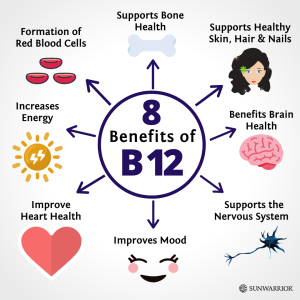
Flaxseeds, also known as linseeds, are small seeds derived from the flax plant (Linum usitatissimum). They have been cultivated for centuries and are renowned for their numerous health benefits. Flaxseeds are rich in essential nutrients, fibers, and plant compounds, making them a great addition to any diet. In this article, we will explore the reasons why you should consider incorporating flaxseeds into your daily routine.
1. Rich in Nutrients
Flaxseeds are packed with essential nutrients that promote optimal health. They are an excellent source of omega-3 fatty acids, which are known for their anti-inflammatory properties and are beneficial for heart health. Additionally, flaxseeds are high in fiber, antioxidants, protein, vitamins, and minerals. These nutrients work together to support various bodily functions, including digestion, immune system, and overall well-being.
2. Heart Health
The omega-3 fatty acids found in flaxseeds play a crucial role in promoting heart health. These fatty acids have been shown to reduce the risk of heart disease by lowering blood pressure, reducing LDL (bad) cholesterol levels, and preventing the formation of blood clots. Including flaxseeds in your diet can contribute to a healthier heart and a reduced risk of cardiovascular conditions.
3. Digestive Health
Flaxseeds are an excellent source of dietary fiber, particularly soluble fiber. This type of fiber can help regulate bowel movements, prevent constipation, and promote overall digestive health. The fiber in flaxseeds also acts as a prebiotic, providing nourishment for the beneficial bacteria in your gut. A healthy gut microbiome is essential for proper digestion and overall well-being.
4. Weight Management
If you’re looking to maintain a healthy weight or shed a few pounds, flaxseeds can be a valuable addition to your diet. The combination of fiber, protein, and healthy fats in flaxseeds helps promote satiety and reduce appetite. Including flaxseeds in your meals can make you feel fuller for longer, ultimately leading to reduced calorie intake and improved weight management.
5. Potential Cancer-Protective Effects
Studies suggest that flaxseeds may have cancer-protective effects, particularly against breast, prostate, and colon cancers. Flaxseeds contain lignans, which are natural compounds with antioxidant and estrogenic properties. These lignans have been shown to inhibit the growth of cancer cells and reduce tumor development. While more research is needed, adding flaxseeds to your diet may contribute to reducing your risk of certain cancers.
6. Skin Health
The nutrients present in flaxseeds can also benefit your skin. The omega-3 fatty acids help maintain the skin’s natural moisture barrier and reduce inflammation, which can result in healthier-looking skin and a reduction in skin conditions such as acne and eczema. The antioxidant properties of flaxseeds also help protect the skin from damage caused by free radicals, potentially slowing down the aging process. Including flaxseeds in your diet can offer a wide range of health benefits. From promoting heart health and aiding digestion to potentially reducing the risk of cancer and improving skin health, flaxseeds are a powerhouse of nutrients. Whether you sprinkle them over your breakfast cereal, blend them into smoothies, or incorporate them into baked goods, there are numerous delicious ways to incorporate flaxseeds into your daily routine. Start reaping the benefits of flaxseeds today!

